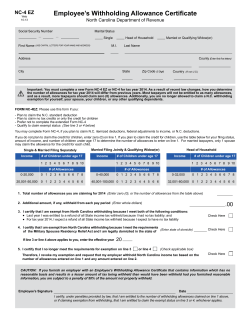
CHAPTER 11 INTERNATIONAL HUMAN RESOURCE
CHAPTER 11 INTERNATIONAL HUMAN RESOURCE MANAGEMENT COMPONENTS OF HRM • • • • • • Recruitment Selection Training & Development Performance Appraisal Compensation Labor Relations INTERNATIONAL HRM (IHRM) • Basic HRM issues remain • Must choose a mixture of international employees • How much to adapt to local conditions? EMPLOYEES IN MULTINATIONAL ORGANIZATIONS • • • • • Host country nationals Expatriates Home country nationals Third country nationals Inpatriates MULTINATIONAL MANAGERS • Host country or expatriate? USING HOST COUNTRY MANAGERS • Do they have the expertise for the position? • Can we recruit them from outside the company? USING EXPATRIATE MANAGERS • Do parent country managers have the appropriate skills? • Are they willing to take expatriate assignments? • Do any laws affect the assignment of expatriate managers? •IS THE EXPATRIATE WORTH IT? • High cost • High failure rate Singapore Taipei London Hong Kong Tokyo 400000 350000 300000 250000 $ 200000 150000 100000 50000 0 Home Salary •EXHIBIT 11.1 PAYING FOR THE EXPATRIATE MANAGER •REASONS FOR U.S. EXPATRIATE FAILURE • • • • • Spouse fails to adapt Manager fails to adapt Other problems within the family Personality of the manager Level of responsibilities •Reasons for expatriate failure, continued • Lack of technical proficiency • No motivation for assignment •MOTIVATIONS TO USE EXPATS • Managers acquire international skills • Coordinate and control operations dispersed activities • Communication of local needs/strategic information to headquarters •KEY EXPATRIATE SUCCESS FACTORS • • • • • Professional/technical competence Relational abilities Motivation Family situation Language skills • Willingness to accept position •PRIORITY OF SUCCESS FACTORS • Depends on : • assignment length • cultural distance • amount of required interaction with local people • job complexity/responsibility •EXHIBIT 11.3 SHOWS A DECISION MATRIX USED TO SET PRIORITIES OR DIFFERENT SUCCESS FACTORS DURING SELECTION Expatriate Success Factors Longer Duration Professional/ Technical Skills Relational Abilities International Motivation Family Situation Language Skills High Assignment Characteristics Greater More Interaction More Cultural and Complex or DisCommunica- Responsimilarity tion sible Job Requirements with Locals Neutral Moderate High Moderate High High Moderate High High High High High High Neutral Moderate Moderate High High Neutral •EXPATRIATE TRAINING •TRAINING RIGOR • The extent of effort by trainees and trainers required to prepare the trainees for expatriate positions •LOW RIGOR TRAINING • • • • Short time period Lectures Videos on local culture Briefings on company operations company operations •HIGH RIGOR TRAINING • • • • Lasts over a month Experiential learning Extensive language training Often includes interactions with host country nationals •EXHIBIT 11.4 SHOWS VARIOUS TRAINING TECHNIQUES AND THEIR OBJECTIVES AS THE RIGOR OF THE CROSS- CULTURAL TRAINING GROWS Techniques: Field trips to host country, meetings High with managers experienced Training in host country, meetings Rigor with host country nationals, intensive language training. Objectives: Develop comfort with host country national culture, business culture, and social institutions. Techniques: Experiential learning exercises, role playing, simulations, case Midlevel studies, survival language training. Training Rigor Objectives: General and specific knowledge of host country culture, reduce ethnocentrism. Techniques: Lectures, videotapes, reading background material. Objectives: Provide Low background information on Training host country business and Rigor national cultures, basic information on company operations. •CHALLENGES OF EXPATRIATE PERFORMANCE APPRAISAL • Unreliable data • Complex and volatile environments • Time differences and distance separation • Local cultural situations •STEPS TO IMPROVE THE PROCESS • 1. Fit the evaluation criteria to strategy. • 2. Fine tune the evaluation criteria • 3. Use multiple evaluators with varying periods of evaluation •EXHIBIT 11.6 Shows several sources of information a superior or the HRM professionals may use to evaluate an expatriate managers Evaluation Sources Criteria Periods Self evaluation Meeting objectives Management skills Project successes Leadership skills Communication skills Subordinate development Team building Interpersonal skills Cross-cultural interaction skills Six months and at the completion of a major project After completion of major project On-site supervisor Management skills Leadership skills Meeting objectives At the completion of significant projects Customers and clients Service quality and timeliness Negotiation skills Cross-cultural interaction skills Yearly Subordinates Peer expatriate and host country manages Six months •EXPATRIATE COMPENSATION •THE BALANCE SHEET APPROACH • Provides a compensation package that equates purchasing power •BALANCE SHEET COSTS • Allowances for cost of living, housing, utilities, furnishing, educational expenses, medical expenses, club memberships, and car and/or driver expenses Domestic Assignment Expenses and Spendable Income Base Salary Expatriate Assignment Expenses and Balanced Spendable Income + Allowances = = + Base Salary Allowances as an incentive to take position, foreign service premium, hardship pay, R&R Taxes Allowances to balance extra tax payments = Goods and Services + Taxes Goods and Services + Housing = + Spendable Income = Allowances to cover cost of living differences, housing, children’s education, medical costs, automobile, recreation, home leave travel Housing Allowances for moving expenses, settling in expenses, initial housing costs, and furnishing allowances Spendable Income •OTHER APPROACHES • Parent country wages everywhere • Wean expatriates from allowances • Pay based on local or regional markets • Cafeteria selection of allowances • Global pay systems •THE REPATRIATION PROBLEM • Difficult for many organizations • "Reverse culture shock" • Expatriates must relearn own national and organizational culture • Includes whole family •STRATEGIES FOR SUCCESSFUL REPATRIATION PROVIDE: • • • • A strategic purpose for repatriation A team to aid the expatriate Home country information sources Training and preparation for the return • Support for expatriate and family •WOMEN EXPATRIATES: TWO IMPORTANT "MYTHS" • Myth 1: women do not wish to take international assignments • Myth 2: women will fail in international assignments because of the foreign culture's prejudices against local women •SUCCESSFUL WOMEN EXPATRIATES • Foreign not female • emphasize nationality not gender • The woman's advantage • strong in relational skills • wider range of interaction options •MULTINATIONAL STRATEGY AND IHRM •IHRM ORIENTATIONS • Ethnocentric • Polycentric • Regiocentric • Global •IHRM ORIENTATION AND MULTINATIONAL STRATEGY • Early stages of internationalization = ethnocentric IHRM • Multilocal strategies = ethnocentric or regiocentric • Regional strategy = closer to the global • International strategy = ethnocentric or polycentric IHRM • Transnational strategies = a global IHRM •CONCLUSIONS • • • • HRM functions IHRM challenges Expatriate managers The role of women in multinational organizations • Multinational strategies and IHRM orientations
© Copyright 2025













